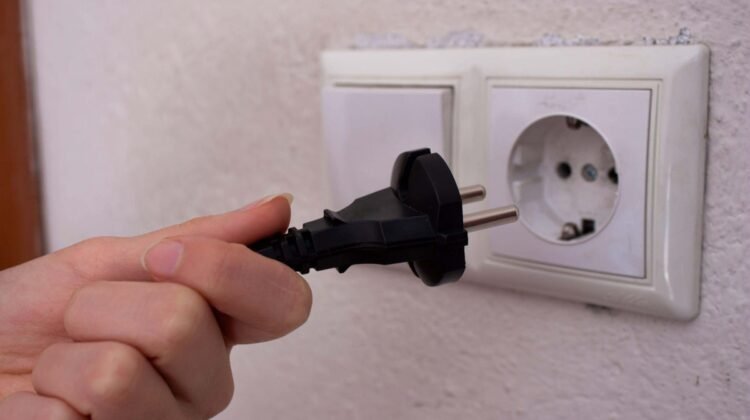
Should you turn your appliances off at the wall to save money?
With the cost-of-living crisis, inflation and rising expenditures, people are becoming more aware of their outgoings and spending habits. They may automatically consider obvious things to cut back on such as clothes, coffees, eating out, or cancelling memberships.
However, often there are easier ways to reduce costs with things that may be right in front of you, such as unplugging appliances to save on energy bills.
Chief sustainability officer at Zero and co-founder of Good With Money Lisa Stanley says that unplugging appliances at the wall ‘100% saves money’. Stanley says that studies from Which? have shown that doing this can save up to £60 a year.
“The reason why it saves money is because if you leave sockets turned on, or plugs turned on at the socket, it has this thing called vampire power,” Stanley explains.
“It actually continues to suck the power once you turn off the socket but when you unplug the appliance, it breaks the circuit and can no longer continue to take that flow of electricity.”
Although appliances can eat up energy a lot, Stanley says it’s ‘simple, small lifestyle changes that can make a difference and they don’t need to impact your quality of life at all’.
What appliances take up most energy?
“When it comes to your fridge and freezer for example, they are quite energy-hungry but of course you’ve got to keep them turned on all the time,” Stanley says. “Other appliances, like your set-top box, actually use quite a lot of energy too but you may find that if you turn that off then it messes with your settings, so you may not want to do that frequently.
“However, you can also look at your laptops and TVs because you can turn your TV off without it impacting your set-top box. All of your tech actually uses around 6% of your entire home’s energy and that isn’t including someone who is working at home daily or a heavy gamer.
“Unfortunately, other kitchen appliances, such as a dishwasher, can use up to 4% of your home’s energy in a year but you can start looking at using the eco-settings.”
Get a free fractional share worth up to £100.
Capital at risk.
Terms and conditions apply.
ADVERTISEMENT
Get a free fractional share worth up to £100.
Capital at risk.
Terms and conditions apply.
ADVERTISEMENT
What changes can people make when thinking about appliances?
“The first thing you can do is make sure you’re not falling victim to vampire power and you’re turning off all your sockets as much as possible,” Stanley says. “Really think about it. For example, when I’m working at home I will plug my laptop in, go downstairs to get lunch and I leave it plugged in, even if my laptop is fully charged – so be aware of these things.”
“Secondly, you can switch to LED light bulbs which are also much kinder to the planet and are longer lasting. The manufacturing impact of them is also better because you’re not having to replace them all the time.
“Thirdly, if you’re boiling the kettle – which is really energy hungry – make sure if you’re only making a cup of tea for one person, pour it into a mug before you pour it into the kettle. That way, you’re only boiling as much water as you need and it’s also saving water – which at the moment is really important that we try and do.
“You can also wash your dishes by hand, run all your appliances on the eco-setting or when washing your clothes, turn down the temperature to 20 or 30 degrees or even cold if you can, as that can make a massive difference to both the amount of energy used and the cost.
“At this time of the year as it is hot, fans are another thing to think about when it comes to energy. If it’s a standard desk fan, you can get it from somewhere like John Lewis and costs 1p an hour to run, versus if you’ve got one of the Dyson fans that are also air purifiers, they can cost up to 66p an hour to run.
“There are also massive differences with the type of smart speakers too. Be aware that keeping music playing when you’re not in the room is essentially sucking power when it’s not needed.”







